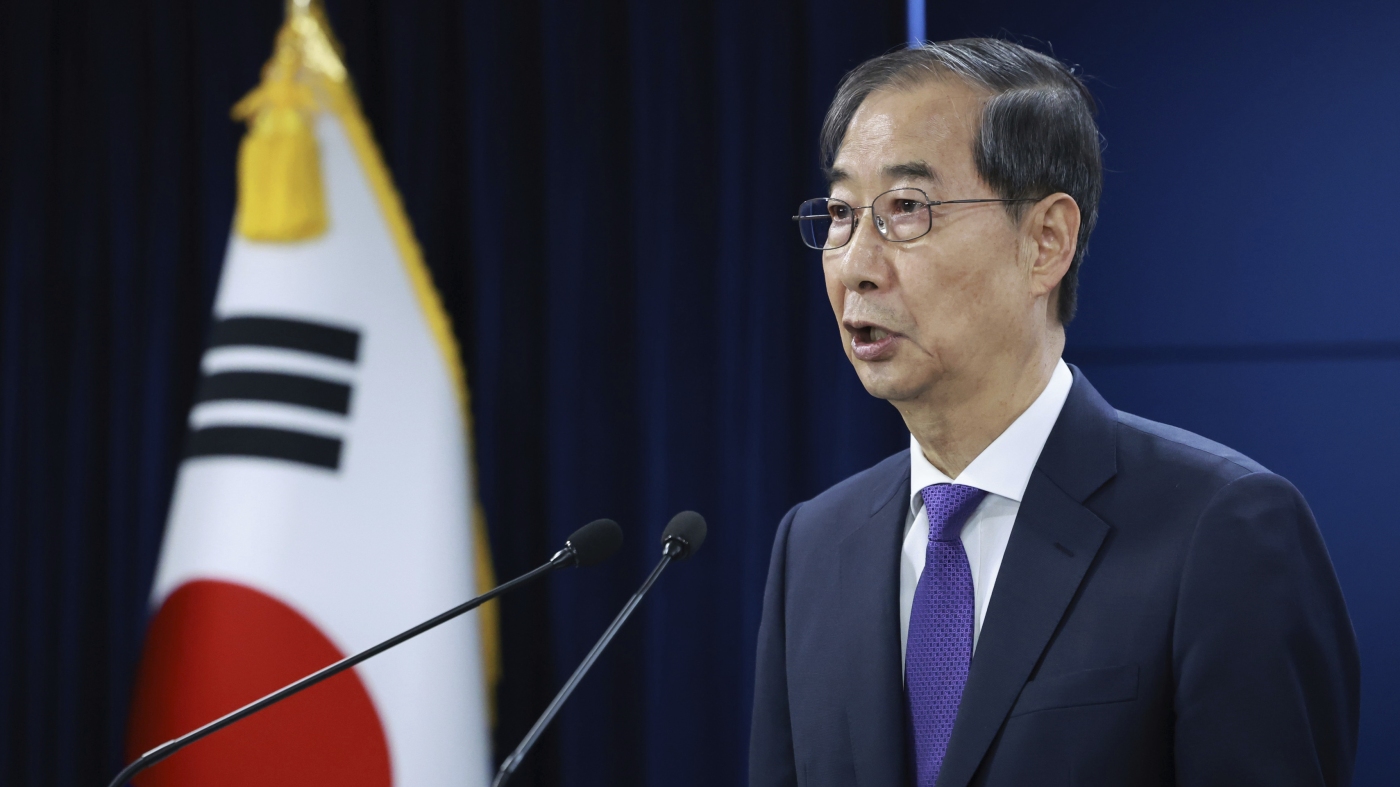The Political Landscape of South Korea: Han Duck-soo’s Resignation and Presidential Ambitions
A Pivotal Moment in South Korean Politics
The political landscape of South Korea is in a state of flux, with recent developments capturing the attention of both domestic and international observers. At the heart of this turmoil is Acting President Han Duck-soo, who announced his resignation on May 1, 2025. This move, widely seen as a precursor to a presidential bid, has set the stage for a dynamic and unpredictable election season. To understand the full implications of Han’s resignation, it is essential to delve into the intricacies of South Korean politics, the strategic calculations behind Han’s decision, and the potential impact on the broader political landscape.
The Resignation of Han Duck-soo
Han Duck-soo’s resignation came as no surprise to political analysts, who had long speculated about his presidential ambitions. His decision to step down from the acting presidency was framed as a desire to take on “heavier responsibility,” a phrase that many interpreted as a clear indication of his intention to run for the highest office in the land. This strategic move allows Han to focus entirely on his campaign, unburdened by the day-to-day responsibilities of his acting role. The timing of his resignation is particularly significant, as it comes at a critical juncture in South Korea’s political cycle, setting the stage for a highly contested presidential race.
The Path to the Presidency
Han Duck-soo’s journey to the presidency is marked by a series of calculated steps designed to position him as a formidable candidate. His background as a former Prime Minister and his extensive experience in government have equipped him with the necessary credentials to lead the conservative People Power Party. By resigning from his acting presidency, Han has effectively cleared the path for his presidential bid, allowing him to concentrate on rallying support and articulating his vision for the country. This strategic maneuver underscores his determination to lead and his belief in his ability to address the pressing issues facing South Korea.
The Conservative Standard Bearer
In the complex tapestry of South Korean politics, Han Duck-soo has emerged as a potential standard bearer for the conservative faction. The People Power Party, with its emphasis on economic growth, national security, and traditional values, finds in Han a candidate who embodies these principles. His conservative leanings and experience in government make him a strong contender in the presidential race, capable of attracting a substantial portion of the conservative vote. However, his ability to consolidate this base and appeal to a broader electorate will be crucial in determining his success.
The Impact on the Presidential Race
Han’s entry into the presidential race is poised to significantly alter the dynamics of the election. His experience and conservative leanings make him a formidable opponent, capable of splitting the conservative vote or consolidating it in his favor. The outcome of this strategic move will depend on several factors, including his ability to articulate a compelling vision for the country, his campaign’s effectiveness in reaching voters, and the broader political context in which the election takes place. As the race heats up, all eyes will be on Han Duck-soo and his campaign, as he seeks to secure the presidency and lead South Korea into a new era.
The Broader Political Landscape
The resignation of Han Duck-soo and his potential presidential run come at a time of significant political turmoil in South Korea. The country is grappling with a range of issues, including economic challenges, social unrest, and geopolitical tensions. Han’s candidacy could provide a sense of stability and continuity, given his extensive experience in government and his conservative policies. However, the broader political landscape is fraught with uncertainty, and the outcome of the presidential election will have far-reaching implications for the country’s future.
The Role of Media and Public Opinion
South Korean media has played a crucial role in shaping public opinion regarding Han’s resignation and presidential ambitions. Reports and analyses have highlighted his strengths and weaknesses, providing voters with a clearer picture of what a Han presidency might look like. Public opinion polls have shown a mixed reaction, with some voters expressing support for his experience and conservative policies, while others remain skeptical of his ability to address the country’s pressing issues. The media’s role in this process is pivotal, as it helps to frame the narrative around Han’s candidacy and influences public perception.
The Future of South Korean Politics
The resignation of Han Duck-soo and his potential presidential run mark a pivotal moment in South Korean politics. The outcome of the presidential election will have far-reaching implications for the country’s future, shaping its economic, social, and geopolitical trajectory. As the election approaches, all eyes will be on Han Duck-soo and his campaign, as he seeks to secure the presidency and lead South Korea into a new era. The political landscape is poised for significant changes, with Han Duck-soo at the center of it all.
Conclusion: A New Chapter in South Korean Politics
The resignation of Acting President Han Duck-soo and his potential presidential run signal the beginning of a new chapter in South Korean politics. His experience, conservative leanings, and strategic decision to resign have positioned him as a strong contender in the upcoming election. As the country prepares for the presidential race, the political landscape is poised for significant changes, with Han Duck-soo at the center of it all. The outcome of the election will not only determine the country’s leadership but also shape its future trajectory, making this a crucial moment in South Korea’s political history. The road ahead is fraught with challenges and opportunities, and the choices made in the coming months will have a lasting impact on the nation’s future.







